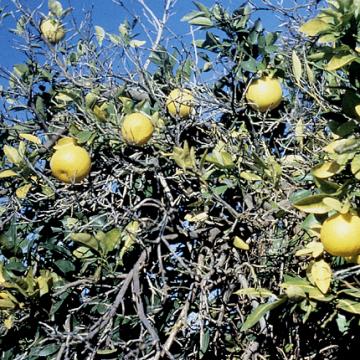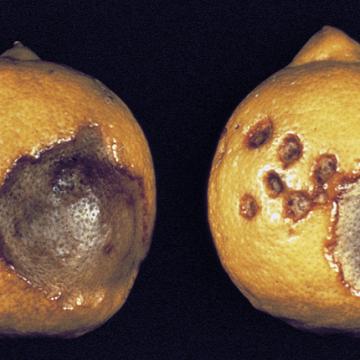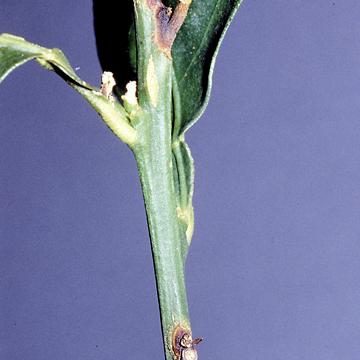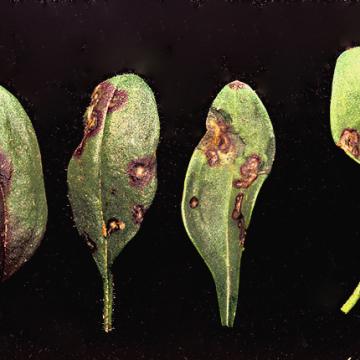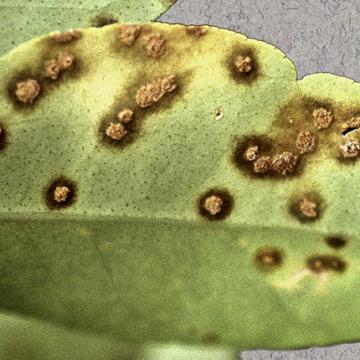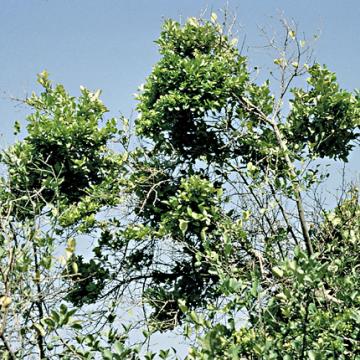DISEASE: Australian citrus dieback
HOST: Citrus (Lime)
Severe decline, a late stage of disease. The disease spreads slowly in mature trees, progressing faster in young trees.
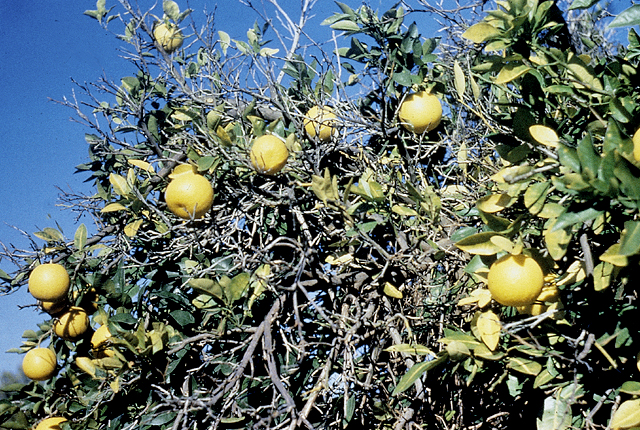
Australian citrus dieback | Citrus (Lime)
DISEASE: Australian citrus dieback
HOST: Citrus (Lime) (Citrus sp.)
PATHOGEN: 'Candidatus Phytoplasma australiense'
PATHOGEN SYNONYM: Phytoplasma Stolbur group
SOURCE: P. Broadbent
DISEASE: Bacterial blast and black pit
HOST: Citrus (Lemon)
The term "black pit" refers to black lesions on fruit, which may be specks or large, sunken pits as seen here. They also may be light tan, later becoming reddish brown to black.
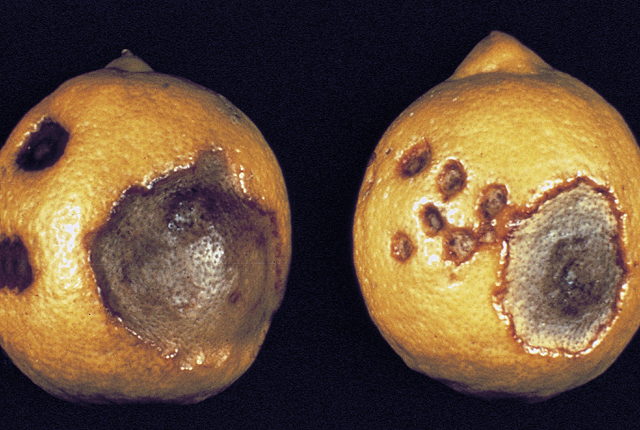
Bacterial blast and black pit | Citrus (Lemon)
DISEASE: Bacterial blast and black pit
HOST: Citrus (Lemon) (Citrus limon)
PATHOGEN: Pseudomonas syringae pv. syringae
SOURCE: J. Menge
DISEASE: Bacterial blast and black pit
HOST: Citrus (Lime)
Characteristic symptoms of brownish black lesions on twigs and leaves (blast), starting with infection of petioles. Black pit refers to brown to black sunken spots on fruit, 5 to 20 mm in diameter.
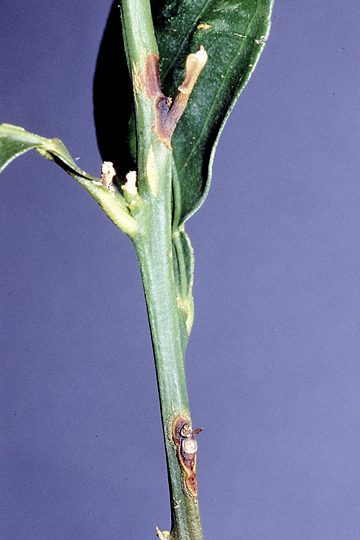
Bacterial blast and black pit | Citrus (Lime)
DISEASE: Bacterial blast and black pit
HOST: Citrus (Lime) (Citrus sp.)
PATHOGEN: Pseudomonas syringae pv. syringae
SOURCE: P. Broadbent
DISEASE: Bacterial leaf spot
HOST: Snapdragon
Leaves with large necrotic areas with brownish centers and purplish margins. Lesions are slightly sunken.
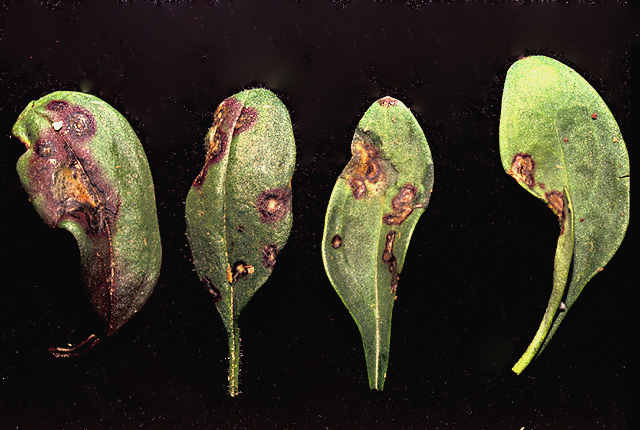
Bacterial leaf spot | Snapdragon
DISEASE: Bacterial leaf spot
HOST: Snapdragon (Antirrhinum majus)
PATHOGEN: Pseudomonas syringae pv. antirrhini
SOURCE: R. Raabe
DISEASE: Citrus canker
HOST: Citrus (Lemon)
Lower leaf with raised, corkylike lesions surrounded by dark brown halos, one of the diagnostic symptoms of citrus canker.
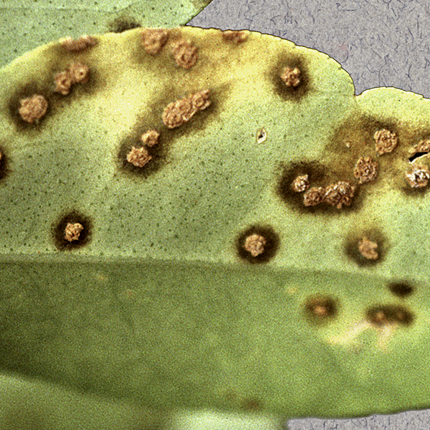
Citrus canker | Citrus (Lemon)
DISEASE: Citrus canker
HOST: Citrus (Lemon) (Citrus limon)
PATHOGEN: Xanthomonas citri subsp. citri
PATHOGEN SYNONYM: Xanthomonas citri
SOURCE: T. Gottwald
DISEASE: Witches'-broom
HOST: Citrus (Lime)
Lime tree with compact, small leaves (witches'-broom). Leaves on older brooms dry out and eventually drop, leaving dead, bare branches. There are no flowers or fruit on brooms.
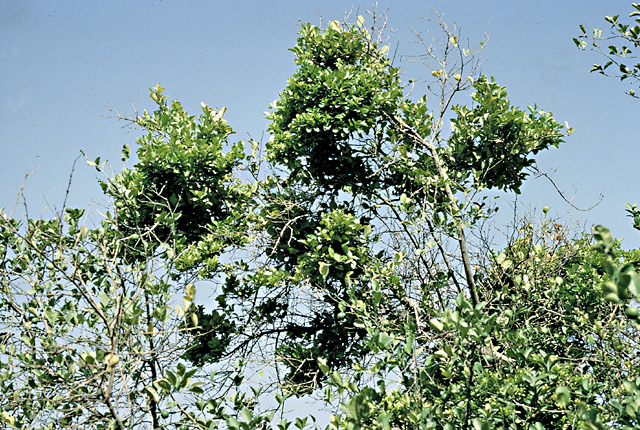
Witches'-broom | Citrus (Lime)
DISEASE: Witches'-broom
HOST: Citrus (Lime) (Citrus sp.)
PATHOGEN: 'Candidatus Phytoplasma aurantifolia'
PATHOGEN SYNONYM: Phytoplasma Peanut witches'-broom group
SOURCE: J. Bove, M. Garnier


